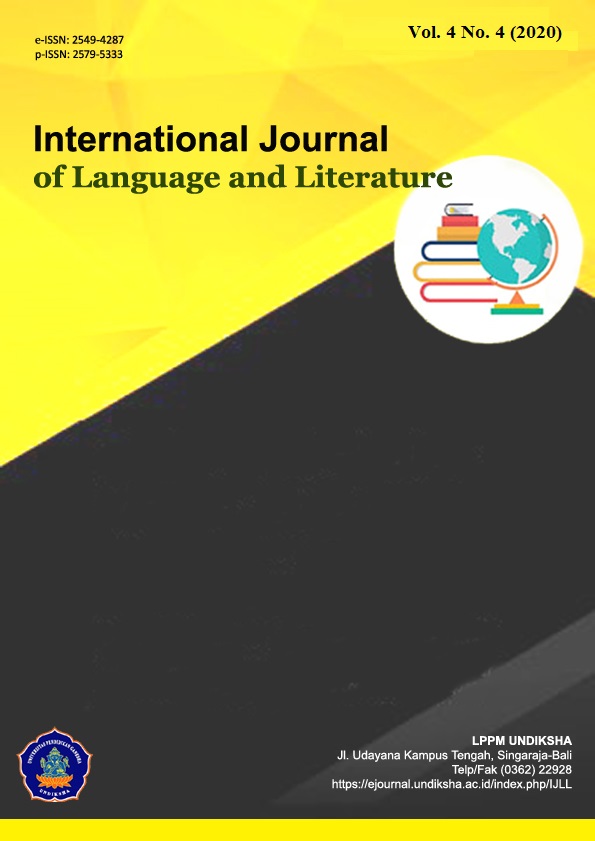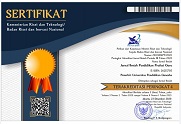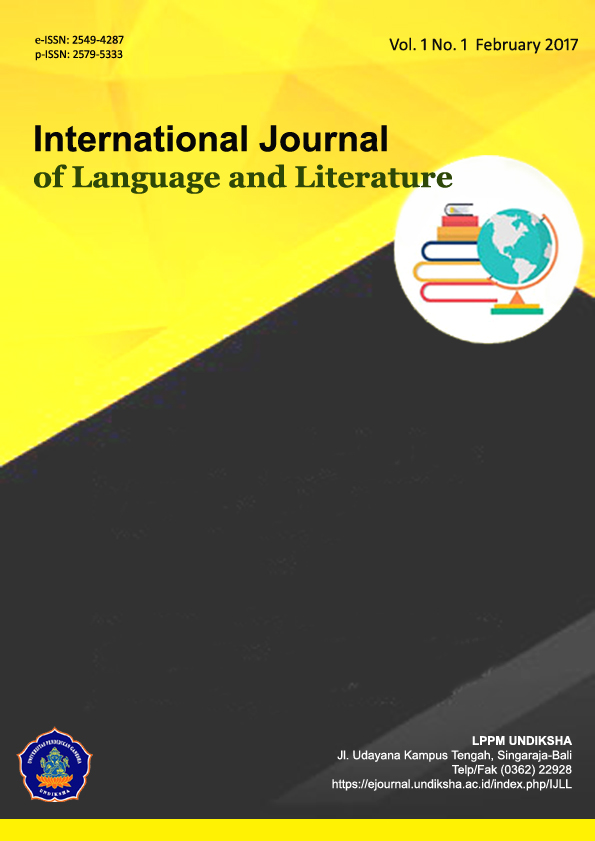THE IMPLEMENTATION OF FLIPPED LEARNING 3.0 AND SELF-REGULATED LEARNING ON TENTH-GRADE STUDENTS’ SPEAKING PERFORMANCE
DOI:
https://doi.org/10.23887/ijll.v4i4.32081Keywords:
speaking performance, flipped learning 3.0, self-regulated learningAbstract
This study aimed to investigate the simple effect and interaction effect of flipped learning 3.0 (FL 3.0) and self-regulated learning (SRL) on students speaking performance in SMAN 1 Sukasada. This study was quasi-experimental research. Fifty-three tenth-grade students were the sample of this study that were divided into two groups, namely experimental and control groups. The data were collected through a post-test and survey. The data were analyzed using a two-way ANOVA. The result showed that flipped learning 3.0 did not give a significant difference on students’ speaking performance, but the effect size showed a medium effect. On the other hand, SRL gave a significant difference on students’ speaking performance between those who have high and low SRL. There was no interaction effect between FL 3.0 and SRL. Through the implementation of FL 3.0 and SRL, the students were stimulated to learn independently which can create their understanding and more active.References
Abrar, M., Mukminin, A., Habibi, A., Asyrafi, F., Makmur, M., & Marzulina, L. (2018). “If our English isn’t a language, what is it?" Indonesian EFL Student Teachers’ Challenges Speaking English. Qualitative Report, 23(1), 129–145. DOI: https://doi.org/10.46743/2160-3715/2018.3013
Amiryousefi, M. (2019). The incorporation of flipped learning into conventional classes to enhance EFL learners ’ L2 speaking , L2 listening , and engagement. Innovation in Language Learning and Teaching, 13,(2), 147-161. https://doi.org/10.1080/17501229.2017.1394307 DOI: https://doi.org/10.1080/17501229.2017.1394307
Bergmann, J. (2017). Flipped Learning 3.0: Flipped Learning Will Never be the Same. www.yotube.com. https://www.youtube.com/watch?v=gppL3mw8SsU
Bergmann, J., & Sams, A. (2012). Flip Your Classroom. Jonathan Bergmann.
Carneiro, R., Lefrere, P., Steffens, K., Underwood, J. (Eds). (2011). Self-Regulated Learning in Technology Enhanced Learning Environments (Vol 5). Rotterdam/ Boston/ Taipei: Sense Publisher. DOI: https://doi.org/10.1007/978-94-6091-654-0
Fan, X. (2018). Research on Oral English Flipped Classroom Project- based Teaching Model Based on Cooperative Learning in China. Educational Sciences: Theory & Practice, 18 (5), 1988-1998.
Geduld, B. (2016). Exploring Differences Between Self-Regulated Learning Strategies of High and Low Achievers in Open Distance Learning. Africa Education Review, 13(1), 164–181. DOI: https://doi.org/10.1080/18146627.2016.1182739
Handoko, M. D. (2017). Concept of Speaking Performance. Iqro Metro. http://iqrometro.co.id/concept-of-speaking-performance.html
Kaur, C., Singh, S., Singh, H., Jaswant, S., Singh, T., Singh, M., & Ja, H. (2018). Flipped Classroom Approach for Improving Speaking Skills of TVET Trainees. International Journal of Applied Linguistics & English Literature, 7 (7), 27-39. DOI: https://doi.org/10.7575/aiac.ijalel.v.7n.7p.40
Kızıl, A. Ş., & Savran, Z. (2018). Assessing Self-Regulated Learning : The Case of Vocabulary Learning Through Information and Communication Technologies. Computer assissted Language Learning, 31 (5-6), 599-616. https://doi.org/10.1080/09588221.2018.1428201 DOI: https://doi.org/10.1080/09588221.2018.1428201
Köroğlu, Z. C., & Çakır, A (2017). Implementation of Flipped Instruction in Language Classrooms : An Alternative Way to Develop Speaking Skills of Pre-Service English Language Teachers. International ournal of Education and Development Using Information and Communication Technology, 13 (2), 42-55.
Lin, C., & Hwang, G. (2018). A Learning Analytics Approach to Investigating Factors Affecting EFL S tudents ’ Oral Performance in a Flipped Classroom. Education Technology & Society, 21 (2), 205–219.
Pallant, J. (2011). For the SPSS Survival Manual website , go to www.allenandunwin.com/spss This is what readers from around the world say about the SPSS Survival Manual :
Quyen, T. T. T., & Loi, N. V. (2018). Flipped model for improving students ’ English speaking performance. Can Tho University Journal of Science. https://doi.org/10.22144/ctu.jen.2018.012 DOI: https://doi.org/10.22144/ctu.jen.2018.012
Wael.A., Asnur. M. N. A., & Ibrahim. I. (2018). Exploring Students' Learning Strategies in Speaking. International Journal of Language and Education, 2 (1), 65-71. DOI: https://doi.org/10.26858/ijole.v2i1.5238
Wang, H., & Chen, C. W. (2019). Learning English from YouTubers : English L2 Learners’ Self-Regulated Language Learning on YouTube. Innovation in Language Learning and Teaching, 0 (0), 1–14. DOI: https://doi.org/10.1080/17501229.2019.1607356
Zipp, G. P., Maher, C., & Olson, V. (2017.). SOLO-Framed Flipped Learning Environment : “ Speaking the Language of Today ’ s Learner ”. Journal of Physical Therapy Education, 31 (3). DOI: https://doi.org/10.1097/00001416-201731030-00022
Downloads
Published
How to Cite
Issue
Section
License
IJLL Journal provides immediate open access to its content on the principle that making research freely available to the public to supports a greater global exchange of knowledge.

This work is licensed under a Creative Commons Attribution-ShareAlike 4.0 International License








